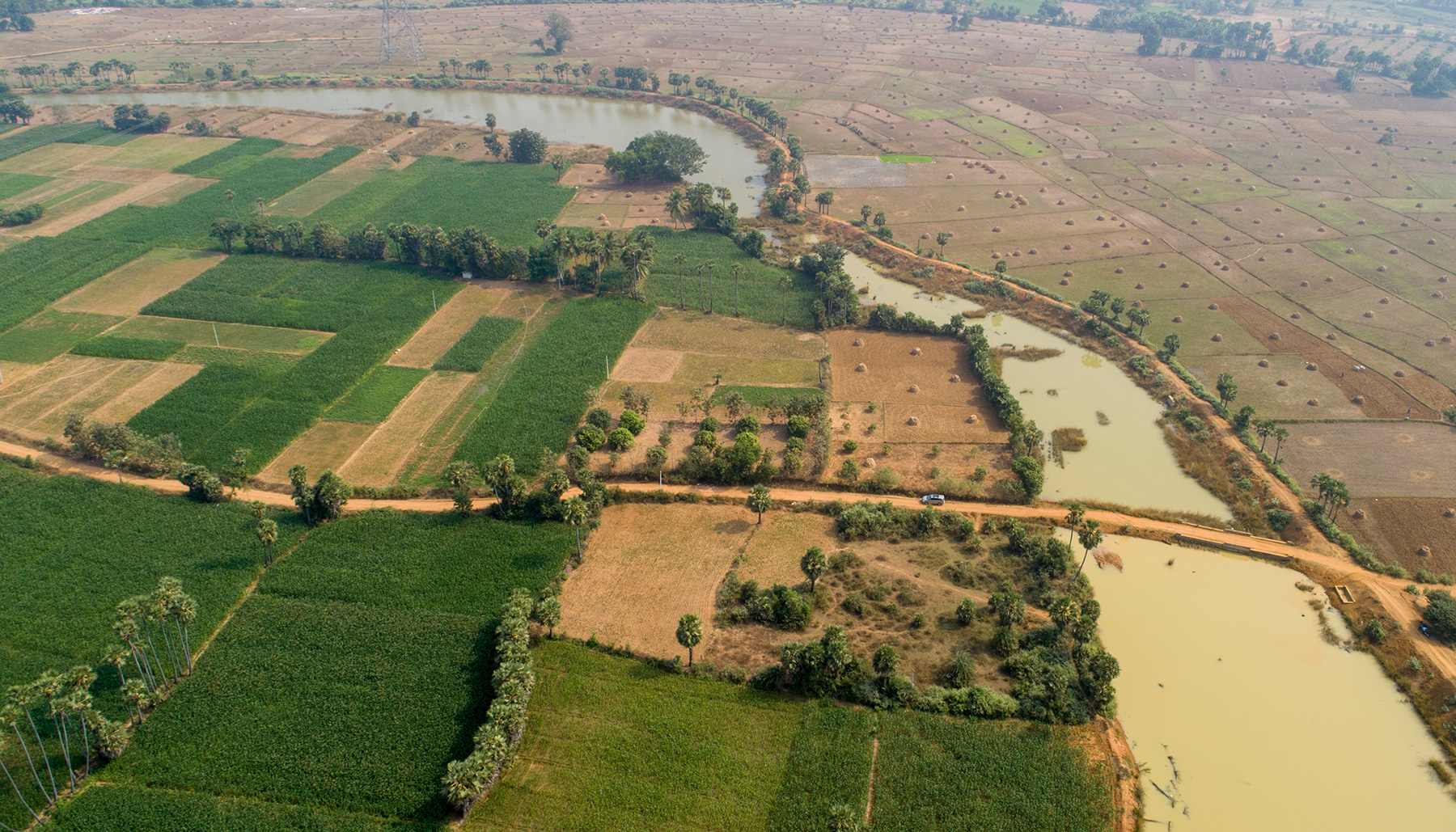Strengthening convergence for climate-resilient water resource management: Learnings from Indo-German project WASCA

‘Water Security and Climate Adaptation in Rural India’ (WASCA) aims to improve climate-resilient water resource management through an integrated approach across national, state and local levels. WASCA focusses on improving the convergence or collaboration among the Government’s development programmes, private sector, the rural community and other stakeholders for joint strategy development, optimal utilisation of technical and financial resources, and designing a participatory approach for planning, financing and implementing climate-resilient water resource management. WASCA offers two key solutions: Composite Water Resource Management framework for improving local level planning, and secondly, approaches for improving convergence and co-financing of climate-resilient water resource management.
The Indo-German project WASCA (Water Security and Climate Adaptation in Rural India) is commissioned by the German Federal Ministry for Economic Cooperation and Development in partnership with the Ministry of Rural Development (MoRD) and Ministry of Jal Shakti (MoJS; ministry of water) and is implemented by GIZ India. As noted in the UN Water Policy Brief 2019, “Water is to adaptation what energy is to mitigation.” WASCA aims to improve climate-resilient water resource management in rural areas through an integrated approach across national, state and local levels. WASCA focusses on improving existing planning and financing mechanisms, demonstrating climate-resilient water resource management measures and strengthening the cooperation with the private sector for water security and climate adaptation. The project is implemented in ten districts across five of the largest states in India, also covering the various agro-climatic zones such as deserts and arid region in Rajasthan, Indo-Gangetic plains in Uttar Pradesh, the river-originator, land-locked and dryland state of Madhya Pradesh, western ghats in Karnataka and coastal regions of Tamil Nadu.
India is enriched with initiatives on water conservation and management. The MoJS brings together programmes such as Jal Jeevan Mission aimed at ensuring tap water supply to every home by 2024, Atal Bhujal Yojana for groundwater management, National Water Mission for enriching climate initiatives in water sector etc. under one umbrella. The world’s largest public works programme – Mahatma Gandhi National Rural Employment Guarantee Act (MGNREGA) hosted by the MoRD spends above 60% of their annual budget (~7.2 billion euros during 2020-21) on infrastructure creation for conservation and management of water, soil and land resources. Private sector investments through the corporate social responsibility framework are on the rise with an expenditure of ~200 million euros during 2017-18 on water, sanitation and related rural development activities.
WASCA’s efforts have been to improve the convergence or collaboration among the development programmes of central and state governments, private sector, the rural community and other stakeholders for joint strategy development, optimal utilisation of technical and financial resources, and designing a participatory approach for planning, financing and implementing climate-resilient water resource management. WASCA offers two key solutions in this regard: The Composite Water Resource Management (CWRM) framework for improving local level planning processes, and secondly, approaches for improving convergence and co-financing of climate-resilient water resource management.
The CWRM planning framework is an approach developed by WASCA for holistic planning of climate-resilient water resource management in rural India. The CWRM framework is built on the principles of Integrated Water Resource Management (IWRM), integrating the assessments related to availability, access, use and disposal of 4-waters including surface water, groundwater from confined and unconfined aquifers and soil moisture, climate science and socio-economic indicators, thus providing a sustainable water plan developed through a bottom-up participatory approach. CWRM planning has four key components:
- Assessing the existing water and climate scenario in a village using GIS (Geographic Information System) and remote-sensing data, water budgeting processes and documenting best practices
- Community consultation processes and capacity building of the field level staff on the planning process.
- Development of the CWRM plan including proposed activities for improving climate-resilient water resource management.
- Consolidation of CWRM plans up to district level for financing and implementation.
The CWRM planning process is currently ongoing in 13,000 villages across the five states and will be consolidated and ready for implementation in the ten districts by December 2020. While CWRM plans provide a comprehensive base and contribute as a first step, WASCA is subsequently strengthening collaborations for co-financing and implementation of CWRM plans.
The recent project publication ‘Convergence and Co-Financing Opportunities for Climate-Resilient Water Management’ provides a blueprint for effective execution of climate-resilient water management strategies. It maps various inter-sectoral convergence and co-financing opportunities available through the government programmes, private sector, civil society organisations and international financing instruments that has the potential for building and enhancing climate resilience through improved water management and governance. It further identifies measures for executing them within existing institutional regimes. These convergence measures include capacity building of implementing agencies and their programme states, field testing and fine-tuning of co-financed climate-resilient water management models before execution on a large scale, and development of a common planning and monitoring system, among others.
Before the project exit in March 2022, WASCA aims to support its partner ministries in upscaling these approaches countrywide, as well as to strengthen the policy dialogue at national and international levels, based on the evidence and results that emerged from the pilots in the five states.
Authors:
Meekha Hannah Paul, Technical Expert, WASCA
Dr Jagdish K Purohit, Technical Expert, WASCA
Dr Vaibhav Sharma, Technical Expert, WASCA
Rajasindhura Aravalli, Consultant
Contact Person:
Rajeev Ahal – Director, Natural Resource Management and Agroecology, GIZ India
Key buzzwords / tags
#climate #water #climateresilience #watersecurity #ruraldevelopment #convergence #cofinancing #digital
Links:
- A Handbook for Practitioners: Composite Water Resource Management (CWRM) planning framework for localising Water Security and Climate Adaptation in Rural India (WASCA): https://www.everydrop-counts.org/imglib/pdf/WASCA-Handbook.pdf
- Convergence and Co-Financing Opportunities for Climate-Resilient Water Management: https://www.everydrop-counts.org/imglib/pdf/WASCA-Opportunities.pdf
- More information on Project WASCA: https://www.giz.de/en/worldwide/75372.html

